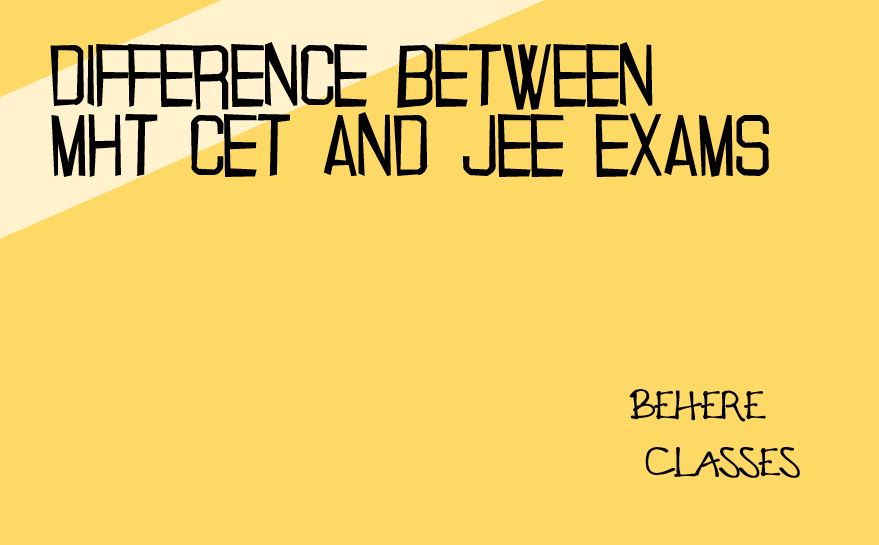Title: Understanding the Difference Between MHT CET and JEE Entrance Exams
Introduction:
Choosing the right entrance exam can significantly impact a student's academic and career trajectory. In India, two prominent entrance exams for undergraduate engineering programs are the Maharashtra Common Entrance Test (MHT CET) and the Joint Entrance Examination (JEE). While both exams serve as gateways to reputed engineering colleges, they differ in various aspects, including eligibility criteria, syllabus, exam pattern, and scope. Understanding these differences can help students make informed decisions about which exam aligns best with their goals and aspirations.
Eligibility Criteria:
MHT CET: The MHT CET exam is conducted by the State Common Entrance Test Cell, Maharashtra, and is primarily for candidates seeking admission to engineering and pharmacy courses in colleges within Maharashtra. To be eligible for MHT CET, candidates must have passed Class 12 or its equivalent examination with Physics, Chemistry, Mathematics, and English as compulsory subjects.
JEE: The Joint Entrance Examination (JEE) is conducted by the National Testing Agency (NTA) and is used for admissions to various engineering colleges across India, including the prestigious Indian Institutes of Technology (IITs), National Institutes of Technology (NITs), and other centrally funded technical institutions. To appear for JEE Main, candidates must have passed Class 12 or its equivalent examination with Physics, Chemistry, and Mathematics as compulsory subjects.
Syllabus:
MHT CET: The syllabus for MHT CET is based on the Maharashtra State Board of Secondary and Higher Secondary Education (MSBSHSE) curriculum for Class 11 and 12. It covers topics from Physics, Chemistry, and Mathematics subjects.
JEE: The JEE syllabus is more extensive and covers topics from Physics, Chemistry, and Mathematics based on the NCERT curriculum for Class 11 and 12. Additionally, JEE Main also includes questions from topics like Aptitude and drawing for students applying to B.Arch programs.
Exam Pattern:
MHT CET: The MHT CET exam consists of multiple-choice questions (MCQs) with no negative marking. It is conducted separately for Physics, Chemistry, and Mathematics, with each subject carrying equal weightage.
JEE: JEE Main consists of two papers – Paper 1 for B.E./B.Tech courses and Paper 2 for B.Arch/B.Planning courses. Paper 1 includes multiple-choice questions in Physics, Chemistry, and Mathematics, while Paper 2 includes questions in Mathematics, Aptitude, and Drawing.
Scope and Colleges:
MHT CET: MHT CET scores are primarily used for admissions to engineering colleges in Maharashtra, including government, aided, and private institutions. Some of the prominent colleges that accept MHT CET scores include the Indian Institute of Technology (IIT) Bombay, Visvesvaraya National Institute of Technology (VNIT) Nagpur, and College of Engineering, Pune.
JEE: JEE Main scores are accepted by engineering colleges across India, including the IITs, NITs, IIITs, and other prestigious institutes. Students who qualify JEE Main are eligible to appear for JEE Advanced, which is the gateway to admissions in the IITs.
Conclusion:
While both MHT CET and JEE are important entrance exams for engineering aspirants, they differ in terms of eligibility criteria, syllabus, exam pattern, and scope. Students should carefully evaluate their preferences, strengths, and career goals before choosing the exam that aligns best with their aspirations. Ultimately, success in either exam requires diligent preparation, dedication, and a clear understanding of the exam pattern and syllabus.
By providing clarity on the differences between MHT CET and JEE, this article aims to empower students to make informed decisions about their future academic endeavors.

